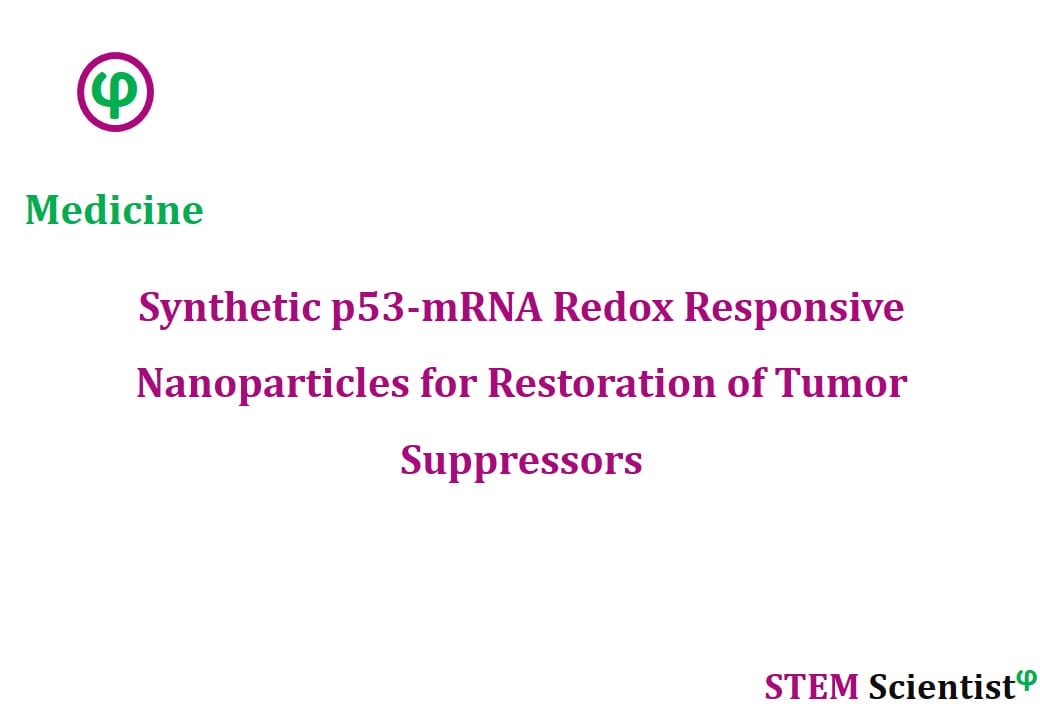
The following study was conducted by Scientists from Harvard Medical School, Boston; Zhejiang University; Hangzhou Normal University, China; University of Waterloo, Canada.
Scientists developed novel redox-responsive nanoparticle (NP) strategy for efficient delivery of p53-encoding synthetic messenger RNA (mRNA). NP-mRNA complex enabled restoration of tumor suppressors and can be utilized in combinatorial therapeutic regimes.
Science Translational Medicine – December 2019.
Synthetic mRNA Nanoparticle-Mediated Restoration of p53 Tumor Suppressor Sensitizes p53-Deficient Cancers to mTOR Inhibition
Abstract
Loss of function in tumor suppressor genes is commonly associated with the onset/progression of cancer and treatment resistance. The p53 tumor suppressor gene, a master regulator of diverse cellular pathways, is frequently altered in various cancers, for example, in ~36% of hepatocellular carcinomas (HCCs) and ~68% of non–small cell lung cancers (NSCLCs). Current methods for restoration of p53 expression, including small molecules and DNA therapies, have yielded progressive success, but each has formidable drawbacks. Here, a redox-responsive nanoparticle (NP) platform is engineered for effective delivery of p53-encoding synthetic messenger RNA (mRNA). We demonstrate that the synthetic p53-mRNA NPs markedly delay the growth of p53-null HCC and NSCLC cells by inducing cell cycle arrest and apoptosis. We also reveal that p53 restoration markedly improves the sensitivity of these tumor cells to everolimus, a mammalian target of rapamycin (mTOR) inhibitor that failed to show clinical benefits in advanced HCC and NSCLC. Moreover, cotargeting of tumor-suppressing p53 and tumorigenic mTOR signaling pathways results in marked antitumor effects in vitro and in multiple animal models of HCC and NSCLC. Our findings indicate that restoration of tumor suppressors by the synthetic mRNA NP delivery strategy could be combined together with other therapies for potent combinatorial cancer treatment.
Source:
Science Translational Medicine.
URL: https://stm.sciencemag.org/content/11/523/eaaw1565
Citation:
Kong, N., W. Tao, et al. (2019). “Synthetic mRNA nanoparticle-mediated restoration of p53 tumor suppressor sensitizes p53 deficient cancers to mTOR inhibition.” Science Translational Medicine 11(523): eaaw1565. DOI: 10.1126/scitranslmed.aaw1565.


